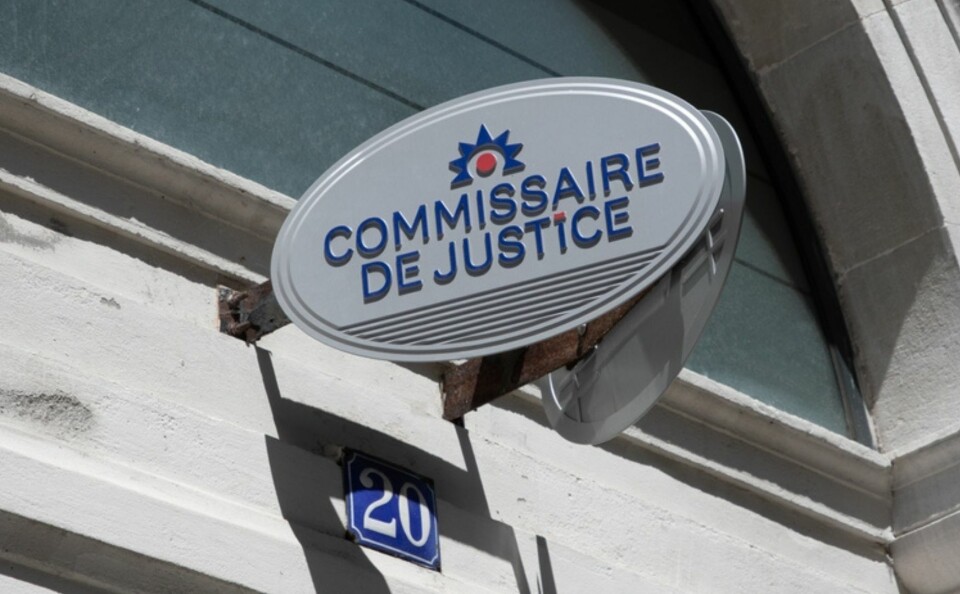-
Nine face suspended prison sentences for online attacks targeting Brigitte Macron
Defence lawyers deny that the accused acted as a ‘mob’. Mrs Macron’s daughter says the campaign badly affected her mother
-
Fatal HGV crashes: Goodyear in court in France over tyre defect claims
Investigators allege the firm knew about the problem but did not issue a recall
-
Marine Le Pen appeal decision should be given in summer 2026, says court
It comes as the RN leader continues to maintain her ‘innocence’ and right-wing politicians have called her conviction ‘an attack on democracy’
13 things French ‘commissaires de justice’ do apart from collect debts
These newly established public officials can help establish facts in a neutral way - from divorce disputes to intellectual property

Sometimes it is difficult to know who to turn to in France’s administration system. We look at several ways commissaires de justice can help with everyday issues that may arise.
The role is a new one and will soon replace the professions of huissiers de justice and commissaires-priseurs judiciaires.
Their fees are regulated and you can find one near you at commissaire-justice.fr
1. Get payment when money is owing
If a court orders a person to pay and they fail to do so, a commissaire de justice can force payment, either by seizing money directly from their employer or by removing goods or seizing property.
2. Value and sell items
They can draw up inventories of the contents of a property, value each item, and then sell them at auction if a court orders this to be done.
3. Establish facts
When requested, they can act as ears and eyes for a court, establishing with impartiality the facts of a case: whether a property has been squatted, damage to a car, the state of a dividing wall, for example.
It is rare for their factual reports to be successfully contested.
Read more: Bailiffs use updated French law to evict squatters from second homes
4. Record proof
They can establish a constat in the case of proof that is likely to disappear (removed by a third party, washed away by rain, or deleted from a website, for example).
This can be useful at the beginning of a legal procedure and can sometimes lead to mediation and an early settlement.
5. Chase bounced cheques
They can open proceedings to recover money if someone has a bounced cheque.
Read more: Do personal credit ratings exist in France?
6. Detail the state of a property
Commissaires can carry out inspections to establish the état des lieux before a new tenant moves in.
This can be useful for both parties as it means the tenant cannot be asked to repair pre-existing damage.
7. Manage maintenance
They can administer maintenance for a block of flats where each one is owned by a different person.
This can involve managing the maintenance and use of communal areas, such as car parks, gardens, pools, tennis courts, entrance halls, corridors and roofs.
They can also deal with communal services such as lifts and rubbish collections.
8. Log property contents when someone dies
They can establish the exact contents of property belonging to a dead person when inheritors fear items might be removed or undervalued.
9. Act as mediators
They can act as mediators in certain circumstances, helping both parties in a dispute to establish the facts of a case and the letter of the law.
If mediation fails, they can inform people of their legal options and, if needed, help them obtain a court order to recover unpaid debts.
Read more: Next door’s extension will block sun to my French home. What can I do?
10. Assist with comptes de tutelle
They can assist court officials who are supervising comptes de tutelle.
These are financial accounts drawn up by court officials appointed to deal with a person’s financial affairs when the individual is too physically frail, or is mentally/psychologically incapable of coping by themselves.
It can also happen when people repeatedly find themselves in chronic debt and banks refuse to give them accounts.
Read more: Explainer: ‘tutelle’ and other forms of power of attorney in France
11. Advise how to recover small debts
In the case of smaller debts, commissaires de justice can advise people how to recover the money.
12. Establish intellectual copyright
They can establish intellectual copyright before a creative work is made public – for example, establishing that a person is the rightful author of a novel before it is sent to agents and/or publishers
13. Help with construction rights
They can establish rights to construct and ensure that the correct notifications are displayed before work begins.
They can also establish the exact state of neighbouring properties in case they are damaged while the work is taking place.
Related articles
Explainer: Role of notaire in France and what to do if not happy
12 things you can do at your mairie in France apart from get married
Did you know? France has a team ready to defend foreigners' rights
























